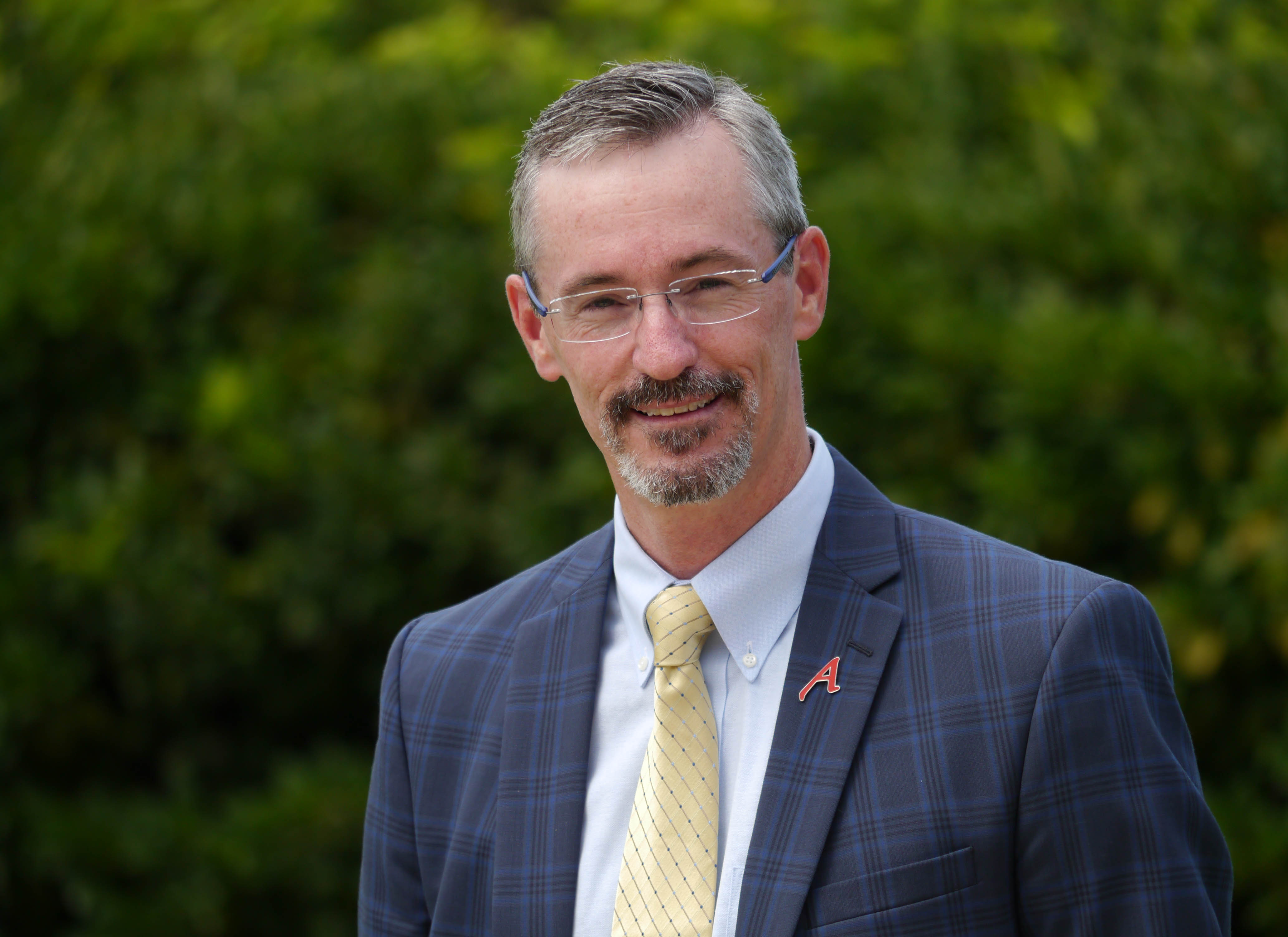
The nonbelieving community in Central Florida is asking Polk County commissioners to finally be civil and considerate toward freethinkers in their monthly meeting tomorrow.
Sarah Ray, director of Atheist Community of Polk County, was given the opportunity in May to deliver an invocation before the board. She offered a respectful secular message of equality and diversity, exhorting Polk County to embrace many traditions: “We are Christians, Jews, Muslims, Hindus, Buddhists, Sikhs, Humanists, atheists, agnostics, unaffiliated, uncertain and so many others.” She concluded by saying: “There is one thing on which we all agree: We share the goal of making Polk County — our county — the best place it can be. And we unite here today around that noble aim and common purpose.”
In an uncalled for afterword, Polk County Commissioners’ Board Chair Rick Wilson followed her invocation by asking everyone to stand and bow their heads and then delivered a Christian prayer:
Father God, thank you for this day and for Your mercy and grace. We ask Your guidance and blessings on this meeting and our county. In Jesus’ name, amen.
This Tuesday, Oct. 5, David Williamson, director of the Central Florida Freethought Community, will again be delivering a secular invocation. Williamson needs to be treated with respect and the discriminatory conduct exhibited at the May 4 meeting shouldn’t recur, the Freedom From Religion Foundation, Atheist Community of Polk County, Central Florida Freethought Community (a chapter of FFRF), and Americans United for Separation of Church and State are asking Polk County commissioners. If the board cannot treat invocation speakers equally, the practice of having an invocation needs to be eliminated entirely, they recommend.
“Citizens, including Polk County’s nonreligious citizens, are compelled to come before local government bodies like the board on important civic matters, to participate in critical decisions affecting their livelihoods, property, children and quality of life,” the letter states. “The prayers exclude the 22 percent of Polk County residents who are not religious. It is coercive and intimidating for these nonreligious citizens to come to a public meeting and be required either to make a public showing of their nonbelief or to show deference to a religious sentiment they do not believe in, but which their board members appear to endorse.”
If the board insists on continuing to host prayers at public meetings, it must not discriminate against any person delivering an invocation, the organizations demand. Secular invocations must be treated the same as Christian prayers, as the board’s policy acknowledges: “This policy is not intended, and shall not be implemented or construed in any way, to affiliate the board with, nor express the board’s preference for or against any faith or religious denomination.”
The 11th U.S. Circuit Court of Appeals — which has jurisdiction over Florida — has condemned discrimination against minority beliefs in invocation practices. In Pelphrey v. Cobb County (2008), the court held that a county commission violated the Establishment Clause by removing Jews, Muslims, Jehovah’s Witnesses and Mormons from a list that it used to select invocation speakers. And in Williamson v. Brevard County (2019), a case involving FFRF in which Williamson was the lead plaintiff, the court ruled that a county commission violated the Establishment Clause by discriminating in favor of mainstream, monotheistic religions in its invocation practice. After the case returned to the district court, the defendant county agreed to a settlement that prohibited it from continuing its discriminatory practices and required it to pay $490,000 in damages and attorney’s fees to the plaintiffs.
“My only expectation is that Chairman Wilson treats me the same way he would like me to treat him if our roles were reversed: with the dignity and respect deserved by anyone who comes to address the board or to offer an invocation,” Williamson remarks.
The Freedom From Religion Foundation is a national nonprofit organization with more than 35,000 members and several chapters across the country, including over 1,700 members and the Central Florida Freethought Community chapter in Florida. Its purposes are to protect the constitutional principle of separation between state and church, and to educate the public on matters relating to nontheism.
